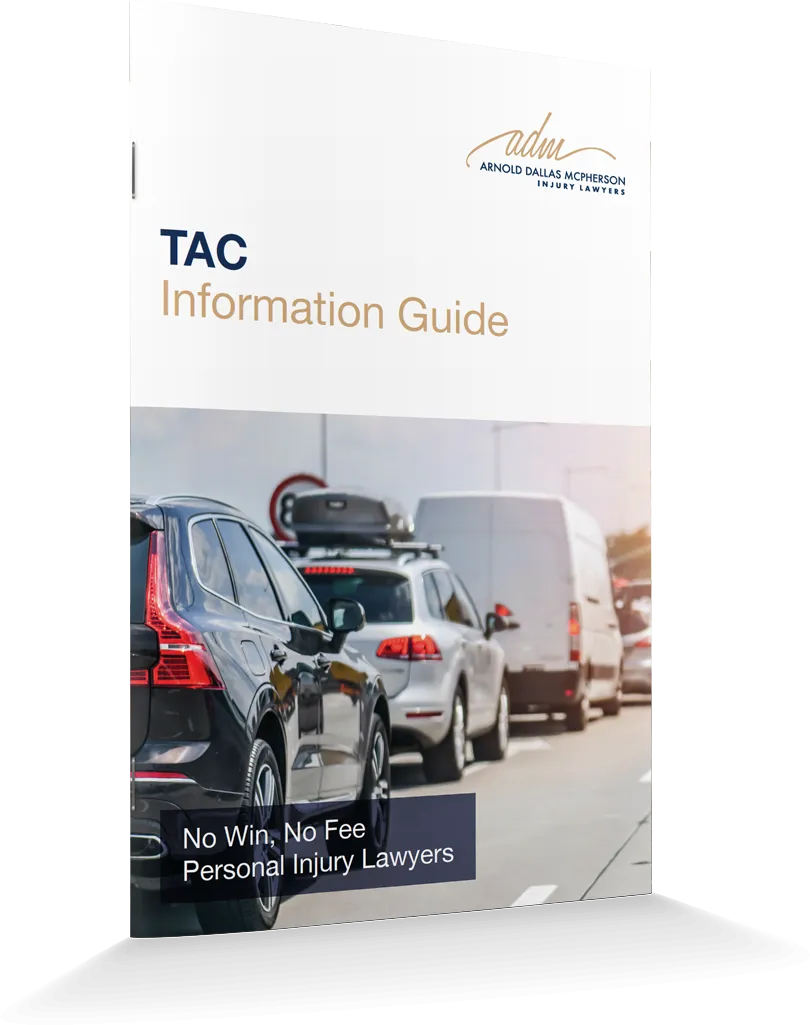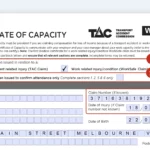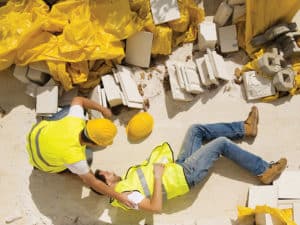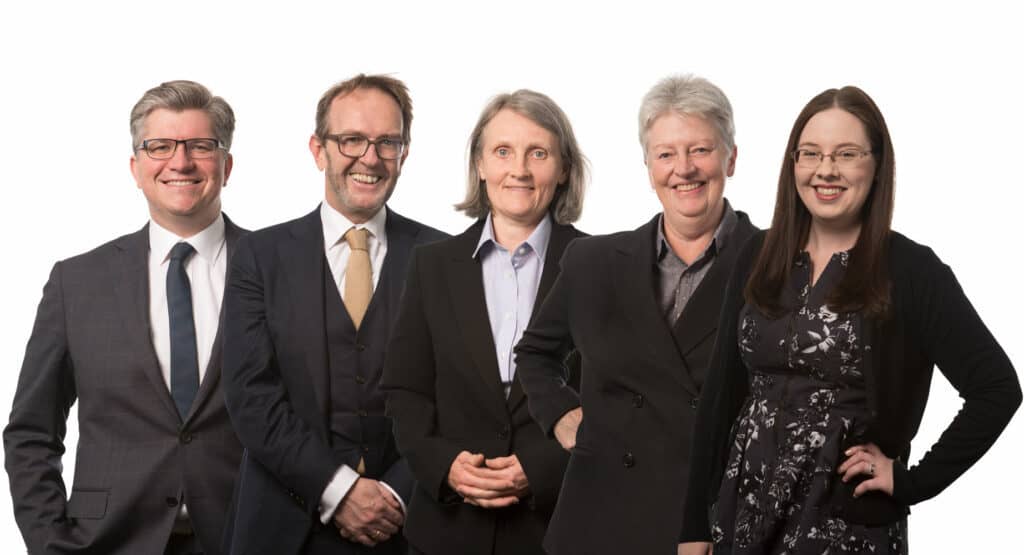Every year, thousands of Victorians are involved in vehicle accidents, confronting a whirlwind of emotions, uncertainties, and practical challenges in the aftermath. Whether it’s a minor fender-bender or a more serious collision, knowing what to do next is crucial for safeguarding your well-being, protecting your rights, and navigating a potentially complex legal aftermath.
Quick Links
In the moments immediately following an accident, shock can cloud your judgement and may make it difficult to remember the essential steps to take. However, with a clear understanding of what to do and proper guidance, you can effectively manage the situation and ensure a smoother path towards resolution.
We hope this guide can help you navigate what to do after a car accident and how to lodge a claim to get compensation for your injuries so you can focus on your recovery.
Key Points
- By law, all drivers in Australia involved in a transport accident must stop, assist the injured person(s), and exchange information.
- The police must be called to road accidents where there are major collisions, serious injuries, vehicles need to be towed away, or compounding variables are involved, such as suspected drug and alcohol use or parties failing to exchange information.
- In Victoria, the Transport Accident Commission (TAC) offers no-fault compensation to individuals injured in road accidents on Victorian roads or while travelling in a vehicle currently or previously registered in Victoria. In order to seek compensation for your injuries, you must be assessed by a medical professional before you make a TAC claim. You should lodge a claim within 12 months from the date of your accident. The TAC has the discretion whether to accept your claim if it is made between twelve months and three years after your accident.
Steps to take following a car minor vehicle accident
1. Stop immediately and move your car to safety
You must stop immediately at the scene of the accident where it is safe to do so. If possible, you should move your vehicle somewhere safe.
If you are a driver involved in an accident where someone is injured or killed and you do not stop, you may face criminal charges and heavy fines. In Victoria, the fines can be over $140,000 and imprisonment for up to 10 years, or you could lose your licence for at least two years.
If you can safely move your vehicle off the road, park it out of the way of oncoming traffic, turn off your ignition, and keep your hazard lights on. Also, check whether there is any debris on the road from the crash that could cause another accident and clear it off the road if it is safe to do so.

2. Assist anyone injured if it is safe to do so
Call emergency services on 000 if urgent medical treatment is needed or if you require services at the accident scene. Provide first aid assistance if you can while help arrives.
For urgent road hazards, you can report a road issue to the VicRoads Traffic Management Centre by calling the number 13 11 70 (press 1) or by submitting a feedback enquiry.
3. Exchange information and record the details of the accident
It is important to remain calm. Regardless of who’s at fault, if circumstances permit, you will need to exchange the following details below with the other driver(s) involved in the accident in order to make a property damage insurance claim or lodge a TAC compensation claim later down the track.
The information you need to gather includes:
-
- Their full name
- Their address
- Their mobile number and/or email address
- Their driver’s licence number
- Their vehicle registration number
- Their car make, model and colour
- The vehicle’s registered owner
- Their insurance details
Other useful information that you could make a note of includes:
-
- Date, time and location of the accident
- The speed you believe you were driving at the time of the accident
- The weather conditions at the time of the accident.
- Possible factors that could have led to the accident, including malfunctioning traffic lights, potholes on the road, insufficient distance left between the cars, or a driver using their phone in the leadup to the accident, and anything else you think might be relevant.
- Name, address and phone number of any witnesses who saw the accident. It’s also a good idea to note their accounts of how the accident occurred.
By law, you must also provide the same information above to others involved in the accident and anyone else whose property may have been damaged due to the accident. If you don’t provide information, or if the other party/parties leave the crash scene without providing their details, criminal offences can be pursued, and you should call the Police Assistance Line immediately on 131 444 (24 hours, 7 days a week).
4. Take photographs of damage and crash scene
It is important that you take photos of your vehicle and any damage caused by the accident, including the point of impact and vehicle position. This also includes taking photos of any surrounding property damage that occurred during the accident. Also, take photos of the other person’s driver’s licence, vehicle number plates, and any damage to their car.

5. Arrange a tow truck if needed
If your vehicle sustained considerable damage and is not able to be driven safely, then you should get your vehicle towed away.
Only certain tow trucks are permitted to tow vehicles from a crash scene. These tow trucks will have ‘TOW’ or ‘HIT’ (heavy vehicles only) number plates, and their drivers must be accredited.
To arrange a tow truck in Melbourne, do a quick Google Search for Tow Trucks Near You and find a reliable tow truck provider.
In regional Victoria, we recommend contacting your car insurer to organise the tow truck.
Note: If a tow truck is required at the scene of a crash, the Police must also be called to attend.

6. Report the car accident to your local Police station
If the police did not attend the crash scene, or if property damage has resulted from a transport accident and the owner is not present, you must report the crash to your nearest Victorian police station as soon as possible.
Once you have reported the accident, you will then be given a police report number. You should also record the name, badge number and station of the officer you reported to.
7. Contact your insurer to lodge a claim
When you’re ready to submit a claim to your insurer, ensure you’ve gathered all the accident details (completed in step 3) and then contact your insurer to begin your claims process.
Below we have gathered insurance claims forms and phone assistance numbers for some of Australia’s most popular vehicle insurance providers.
Australia’s Top Vehicle Insurance Providers Claim Forms
| Insurance Provider | Insurance Claim Form | Phone Assistance Claims** | Roadside Assistance |
| Youi | Start a claim here | 1300 235 721 (press 2, press 2, press 2) | 1300 235 721 (press 4) |
| RACV (Victoria) | Make a new claim Here | 13 19 03 (press 1, press 1, press 2) | 13 11 11 |
| Budget Direct | Make a claim here | 1300 139 591 (press 1, press 1, press 2) | 1800 514 448 (press 1) |
| NRMA | Claim online here | 1300 546 125 (press 1, press 1) | 13 11 22 (press 1) |
| GIO | Make a claim here | 13 10 10 (press 1, press 1) | 1800 386 398 |
| AAMI | Make a claim here | 13 22 44 (press 1, press 1) | 1800 154 810 |
| Allianz | Make a claim here | 13 10 13 (press 1, press 2) | 1800 010 536 (press 1) |
| Apia | Make a claim here | 13 50 50 | 1800 814 578 |
| Suncorp Insurance | Make a claim here | 13 25 24 | 1800 386 505 |
| Bingle Car Insurance | Make a claim here | Online only insurer | 1300 735 640* |
| Coles Insurance | Make a claim here | 1300 265 374 | 1300 265 374 |
| Woolworths Insurance | Make a claim here | 1300 10 1234 | 1800 225 405 |
* No roadside assistance service – tow truck only if car unsafe to drive.
** Please note the above phone assistance numbers may have changed and accuracy of information in not guaranteed by Arnold Dallas McPherson Injury Lawyers.
8. Seek medical treatment for your injuries
If you haven’t received medical treatment from an ambulance at the vehicle accident scene, it’s advised that you still seek medical treatment when you are able to do so, as sometimes even minor injuries can appear later. Identifying any potential injuries is important when lodging a TAC Claim.
We also advise that you keep records of all receipts for any treatment you receive, as they will be required later if you want to claim reimbursement for them.
Where could you get treated for your injuries?
| Treating Provider | Information to collect |
| Ambulance Victoria Paramedic | You can be treated at the scene of the crash. |
| Hospital | You may have been taken to hospital after an accident. You may obtain a Hospital Discharge Summary. |
| GP (General Practitioner) | For minor injuries, you can see your local GP for diagnosis. It is important to ask for a Certificate of Capacity from your local GP, especially if you are unable to work or require light duties at work. |
| Allied Health Professional | You may need to see a physiotherapist, chiropractor or psychologist as a result of pain or trauma from your injuries. Keep records of receipts paid to any allied health professionals who treated you for your injuries. |
9. Lodge a TAC Claim
To lodge your claim, contact the TAC on 1300 654 329, online, or through the hospital providing urgent medical treatment.
You should lodge a claim within 12 months of an accident. After 12 months, the Transport Accident Commission has the discretion whether to accept your claim. TAC claims cannot be accepted after three years have passed since the date of the accident.
Information you will need for you to lodge a TAC Claim:
- Police report number that you received when you reported the incident to a Police Officer.
- If you did not report the incident to the police at the time of the accident, you will need to report it to your local police station and provide a police report number, or the name of the officer, their badge number and the police station which you reported the accident to.
- You will also need written details of your accident injury from a healthcare professional, such as a hospital discharge summary (if you were hospitalised), a medical certificate or a letter from a doctor or allied health professional.
- Your information that you’ve gathered in Step 3 of the process of gathering evidence.
- You will also need the contact details of the health professionals you saw for your treatment.
- If you’ve had more than 5 days off work (or you need more) due to your accident, you will need to provide your employment details in the lodgment form.

Key legal points you need to know about the TAC
- In Victoria, the Transport Accident Commission (TAC) provides no-fault compensation to anyone injured in car accidents on Victorian roads or while driving a vehicle currently or previously registered in Victoria. In limited circumstances, the TAC may provide compensation even when a registration has lapsed or if you are a passenger in an unregistered vehicle
- It is vital to highlight that adults should lodge a claim within 12 months from the date of the transport accident.
- Minors have up to three years to lodge a claim after becoming 18 years old.
If you have a serious injury, you should seek legal advice, as you may be entitled to lump sum compensation. You have six years from the date of your accident to pursue a claim for an impairment benefit or common law damages for pain and suffering and economic loss.
10. Seek Legal Advice
If your road accident injury is serious enough, you may want to seek legal help from a TAC Lawyer who specialises in TAC Road Accident Claims. The legal field of transport accidents is quite a complex area of law, and only after speaking to an experienced personal injury lawyer in that field will you know whether or not you may have a potential lump sum compensation claim for your injuries and loss of earnings as a result of your accident.

Arnold Dallas McPherson offers a free initial consultation to those involved in road accidents. We are experienced in all types of claims and can advise quickly whether further compensation may be claimed based on your circumstances.
Types of compensation you can claim from a road accident
- Medical and like services include hospital attendance, rehabilitation, and home help.
- Loss of earnings or earning capacity (including any potential future losses).
- An Impairment Benefit if you suffered a permanent injury.
- Damages for your pain and suffering and loss of enjoyment of life.
Road Accident FAQs
What happens if I don’t stop at the scene of an accident?
By law, you are required to stop at the scene of an accident and help any injured persons. Failure to do so could open you up for criminal charges, where penalties include:
- fines over $140,000
- imprisonment for up to 10 years
- losing your licence for up to 2 years
When are you required by law to call the Police to the scene of an accident?
Each state within Australia has different laws for when you are required to call the Police to the scene of a vehicle accident. Police attendance is required when:
- There has been a serious injury or fatality as a result of the vehicle accident.
- Someone is trapped and cannot free themselves from the accident scene..
- A party of the vehicle accident failed to stop and exchange details.
- One of the drivers involved in the accident appears to be under the influence of drugs or alcohol.
- There are road hazards as a result of the accident, such as debris and leaking fluids and the police need to manage traffic.
- There is property damage as a result of the accident.
- Animals are injured as a result of the accident.
- A vehicle needs to be towed away.
When are you not required to file a transport accident report to the Police?
If the vehicle accident was minor and no persons were injured as a result of the collision, then the Police are not required to be on the scene.
However, if someone involved in the crash is later treated for an injury, then you should call the Police Assistance Line on 131 444.
What happens if you were involved in an accident with a truck carrying dangerous goods?
In the unfortunate event of being involved in a vehicle accident with a truck carrying dangerous goods, it’s important to follow the steps below:
- Immediately call the police or fire brigade on 000.
- Warn other road users to steer clear of the crash site.
- Avoid touching or breathing in any fumes of dust from the spilled chemicals.
- Look for any Emergency Procedure documents on the truck driver’s door and follow these procedures to contain the spillage (if it is safe to do so).
Checklist
If you have been involved in a transport accident, here is a quick checklist to help:

TAC Information Guide
"*" indicates required fields
















